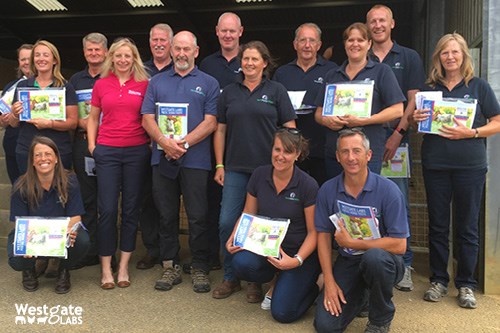
Westgate Labs supports horse health on the front line with World Horse Welfare
31 July 2019
Providing free worm egg counts for field officer cases
Westgate Labs has forged a successful partnership with World Horse Welfare to tackle the ever present threat of parasite infection in horses. Worm burdens are a significant feature of the nearly 2000 situations that the 16 World Horse Welfare Field Officers attend annually. Westgate Labs is providing free worm egg count tests to assist in identifying potentially life threatening problems and give meaningful evidence to help officers engage with horse owners.
The arrangement kicked off in July 2018 with a road trip to World Horse Welfare HQ in Norfolk. Here a team from Westgate introduced the service and provided training for all officers on testing methods and the most up to date treatment protocols and management and husbandry techniques for optimum parasite control. Since then the same day testing facility and the backup help and advice offered by the lab has proved invaluable to help address the problem of parasite infection in the nearly 100 horses tested.
Chief Field Officer for World Horse Welfare, Claire Gordon commented:
“We are very grateful to Westgate Labs for their support. Parasite damage is one of the most common welfare problems our Field Officers encounter when investigating reports of equine neglect. Not only is it one of the most common issues, it is also one of the most preventable. Thanks to our partnership with Westgate, we can now better support horse owners in understanding the importance of faecal egg counts and an appropriate worming programme, which will really help us to improve horses welfare.”
Westgate Labs Director, Claire Shand commented:
“Here at Westgate our mission is to improve the health and worm control of horses in the UK. Working with World Horse Welfare is a way we can use our services and expertise to give back to some of the most vulnerable equines in the UK. The Field Officers do such amazing work and if we can help prevent a horse’s suffering or educate an owner with this partnership then it’s been worthwhile. We need to continue to raise awareness of test based worm control for all horses and the issues of drug resistance which is one of the biggest black clouds facing the veterinary industry.”
‘Faecal egg counts can be used to identify the likely 15-20% of horses that need worming and can reduce wormer use by up to 82%.’ Lester and Matthews (2013)

